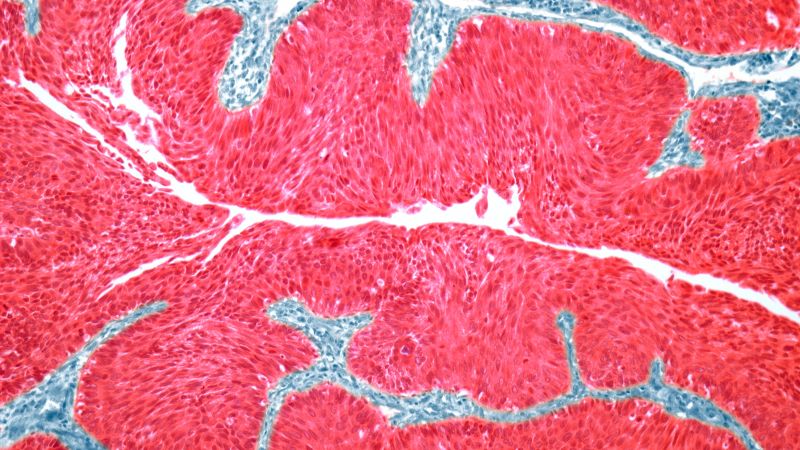A groundbreaking study presented at the European Society for Medical Oncology Congress in Madrid indicates that a new combination of cancer medications can significantly improve the overall survival of patients with advanced bladder cancer. The research suggests that a treatment regimen consisting of the antibody drug enfortumab vedotin and the immunotherapy pembrolizumab, administered through IV infusions, reduces the risk of disease progression or death by 55% compared to standard chemotherapy. Patients who received this combination therapy had a median overall survival of 31.5 months, doubling the survival rate compared to those treated with standard chemotherapy.
Bladder cancer is a prevalent form of cancer, ranking as the sixth most common cancer in men worldwide and causing approximately 200,000 deaths annually. Currently, treatment options for bladder cancer depend on the stage of the disease and may involve surgery or common chemotherapy drugs such as carboplatin or cisplatin. However, the new research comes at a critical time, as there is a shortage of platinum-based chemotherapy drugs, including carboplatin and cisplatin, in the United States.
The Phase 3 trial included 886 patients who were randomly assigned to receive either the enfortumab vedotin and pembrolizumab combination or a chemotherapy treatment called gemcitabine with cisplatin or carboplatin. The trial demonstrated that the new drug combination had a similar safety profile to the chemotherapies, with fewer adverse reactions. The researchers are now planning to submit their data to regulatory agencies such as the US Food and Drug Administration for approval.
Dr. Thomas Powles, one of the researchers involved in the study, believes that these findings have the potential to change the standard of care for advanced bladder cancer. Other studies have also explored new treatments for different subsets of bladder cancer patients. For instance, a Phase 3 trial showed that a targeted therapy called erdafitinib was effective for patients with specific gene mutations in advanced or metastatic urothelial cancer. Another study found that combining chemotherapy with immunotherapy drugs improved survival rates in previously untreated advanced bladder cancer patients.
These breakthroughs offer hope for more effective treatments for bladder cancer and highlight the importance of ongoing research and development in the field of oncology.


